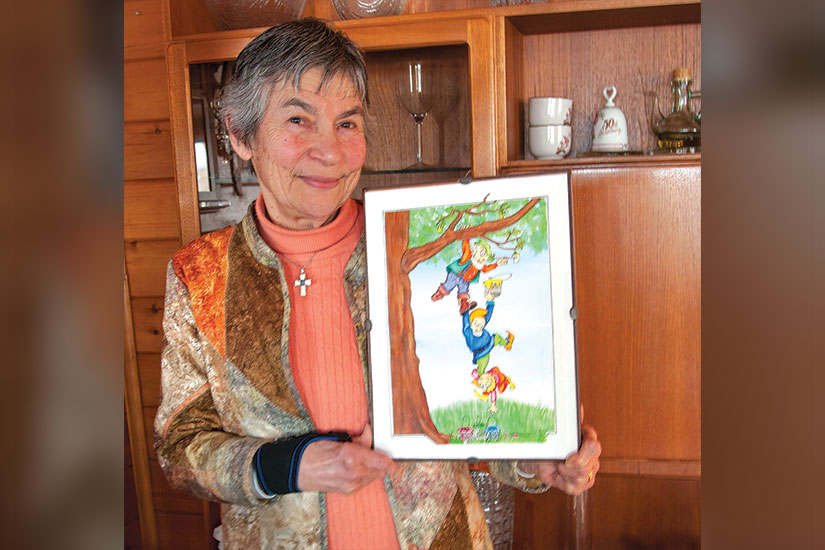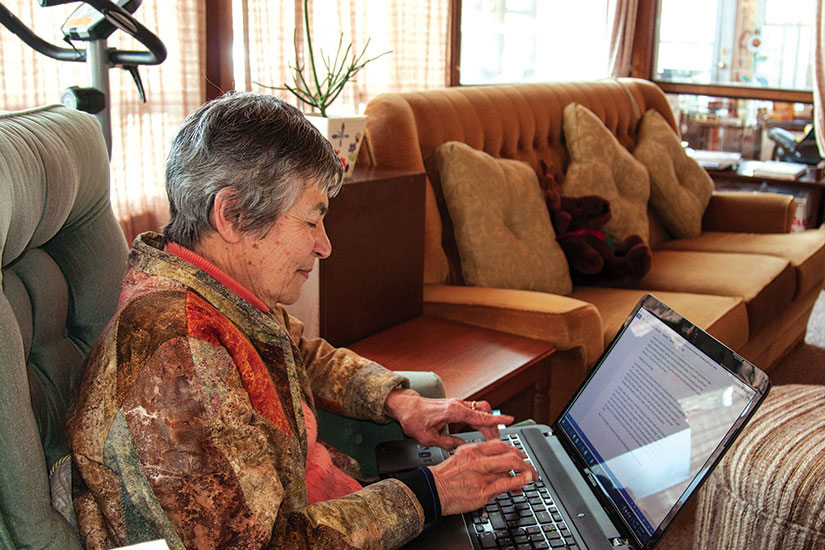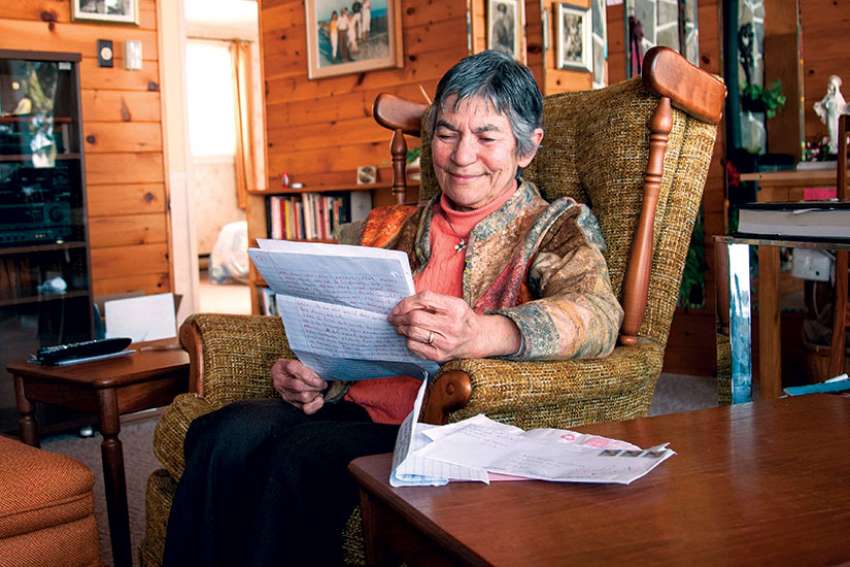“So how do you make hot coffee,” I asked, “when you’ve got no means of heating water?”
“Like this,” Donnie wrote. “I have this thing we call a stinger. Two wires, connected to one-inch screws, separated by a piece of plastic. The screws go into a cup of water, the other end into an electric socket. You throw some salt in the water and the screws get hot and the water boils”
“Sounds highly dangerous,” I wrote. “Does it really work?”
“Oh yeah. I get my hot coffee. Well — sometimes I just cause a minor explosion.”
When I think about Donnie’s coffee making, I wonder what it must be like to live the way he does, locked up, in prison, without freedom — like Peter and other inmates I’ve let into my life.
I was put in touch with Donnie after signing up with Human Writes, an organization based in England that organizes letter-writing to American death-row inmates. I signed up and was put in touch with Donnie. He was being held in the notorious H Unit at a correction centre in Oklahoma.
Donnie was overjoyed to have a pen pal. He wrote frequently, sometimes two letters in a week, but told me I should not feel compelled to write back that often.
“Even if you don’t write much, it’s enough to know that you care,” he said. “When they first brought me to this place I felt so terribly, desperately alone. I begged God to send angels to be with me. And then this letter came, a letter from a stranger — signed Angela!
“God heard my prayer.”
I’m not sure when it happened, but I know exactly what sparked my interest in prisoners. Flipping through National Geographic many years ago my attention was caught by a picture of a man holding a seedling. But this wasn’t just another article about plants — it was about planting by prison inmates.
I’d never given more than a passing thought to prisoners, but I’ve loved gardening since I could toddle and so I read the article with interest. Someone had come up with the idea of teaching inmates basic gardening skills. The results of the experiment were remarkable. Most prisoners became less violent, more compliant, even docile — changed men.
I couldn’t stop thinking about this wonderful idea. The image of hardened criminals tenderly handling baby plants was embedded in my mind, like a seed, where it germinated. Prisoners, and their unhappy lives, were often in my thoughts. I joined the local chapter of Amnesty International (in Italy) and for years wrote letters on behalf of prisoners to princes, presidents and ministers of justice around the world. I pleaded for stays of execution, for access to legal or medical assistance, for ending torture.
Then one day I learned about an American prison chaplain who had spoken about the terrible loneliness of prisoners. Worse than harsh living conditions, poor food and ill-treatment by guards, was a prisoner’s sense of abandonment. Prisoners were rejected often by family and friends. Some prisoners went months, even years, without a visitor, or even a phone call or letter. A lucky few had a pen pal. The chaplain said other men wished they had one too.
I’ve always enjoyed writing letters. I’d honed my skills writing to our four kids who were studying in Canada while my husband and I worked in Italy. So I asked for the name of a prisoner. I was sent Peter. In Illinois. On death row. I think the year was 1999.
The first letter wasn’t easy. What could I say to a condemned man? Knowing he was on death row, I assumed, correctly it turned out, that he must be guilty of murder — at least one. Would he know that I knew? How would he feel about that? What would he think of me, a strange woman, writing to him?
 Angela Saldanha shows a painting she received as a gift from a prison pen pal. The artwork adorns the walls of her Brechin, Ont., home. (Photo by Jim O’Leary)
Angela Saldanha shows a painting she received as a gift from a prison pen pal. The artwork adorns the walls of her Brechin, Ont., home. (Photo by Jim O’Leary)
With Christmas approaching, I sent him a card, and a brief letter to explain how I’d heard about him and asking if he’d like to correspond. I told him a bit about myself (born in England, raised in India, a dozen years in Montreal, a year in Switzerland, then living in Italy). I mailed my letter and began to worry. What had I got myself into?
I didn’t have to worry long. An envelope arrived, stamped in red ink with the words “This correspondence comes to you from an inmate.” I tore it open so fast I nearly ripped the letter.
Peter was delighted to have a pen pal. He was intrigued by my background. “Wow! So many different countries! Sounds like a United Nations roll call!” he said. He asked me what it had been like, living in all these places.
I asked him what it was like on death row. But I did not then, or ever, ask him about his crime. From the start, I did not want to know any of those details. Whatever it was, I reasoned, it concerned him, his victim(s) and God. Judge and jury too, I guess. But it wasn’t my business.
But he told me he’d been arrested at age 21 and had been on death row for nearly 10 years. In the years that followed, I learned a lot about Peter and his life on death row. He found it frustrating that inmates on The Row were not allowed to work like other prisoners. He was lonely. His dad and stepmom lived in another state and rarely visited. He had a cell to himself — usually — but was moved frequently and sometimes had a cellmate. With each move, guards would go through his belongings, discarding things as they saw fit. Once “they confiscated my address book because it was a homemade one,” he said. He likes to paint (whenever he can
afford art supplies from the prison commissary) and several of his “masterpieces” adorn our home. He practices yoga and has led yoga classes for fellow inmates.
Peter had been nominally Catholic but converted to Buddhism in prison. We compared notes on meditation; mine, Christian, his, Buddhist. He explained Metta to me — the practice by which he would think about people in his life and send them positive thoughts of love, peace, wellbeing. He started with loved ones and moved through a list until he got to those he positively hated. “I’ve finally got to the point where there’s nobody left on my hate list!” he wrote jubilantly.
One day we learned that an outgoing Illinois governor was planning to commute some death sentences to life without parole. As the discussion about this dragged on for months, Peter became jittery with the uncertainty.
“I wish they’d just kill me now and be done with it,” he wrote. “I don’t want to think of spending the next 30 or 40 years in jail anyway.”
I scolded him. “Life is not lived in chunks of 10 or 20 years, but one day at a time.”
He wrote back: “Thanks for reminding me — that’s one of the basic tenets of Buddhism!”
A few weeks later another letter came. Peter had been given life.
Unlike Peter, who admits he is a murderer, Donnie claims to be innocent. I believe him. But so many things have gone wrong in his case there seems little likelihood he’ll walk free any time soon. I suspect being black doesn’t help. Nor his limited education.
“I made it to Grade 12 and I’m the most educated person in my family,” he told me.
He writes a lot about life on The Row. Everything is drab, grey cement — walls and floor. The cell has two beds, separated by a combination sink/toilet. A naked bulb provides the only light. Food comes through a slit in the door known as the beanhole, “because beans, in one form or another, is what we get most often.” By the time food gets to him “it’s not even warm.”
Last Christmas, Donnie was moved temporarily to another jail. There “they gave me the first hot meal I’d had in two years,” he wrote.
Communication with the guy in the next cell is by an elaborate system of knocks on the wall.
“Last night I got some awesome happy knocks,” he wrote.
 Angela Saldanha reads a letter from one of the death row inmates she has befriended. (Photo by Jim O’Leary)
Angela Saldanha reads a letter from one of the death row inmates she has befriended. (Photo by Jim O’Leary)
He doesn’t say much about the guards but I gather they’re not hired for their kind heartedness. They returned the first letter I wrote because it had an address sticker. Stickers aren’t allowed. Another letter was returned because, writing my address in a hurry, I’d put A instead of Angela before my surname. Initials are not allowed either.
Some months ago he told me that a little bird had been flying around The Row, unable to find its way out. On one hand he felt sorry for it being trapped, on the other I know he was glad to see it.
I recalled Byron’s poem “The Prisoner of Chillon” about seven brothers imprisoned for their faith in the dungeon below Lac Leman. After seeing his sixth brother die, the surviving one was alone in utter misery and despair. But then: “A light broke in upon my brain; it was the carol of a bird.”
A recent letter from Donnie told me, “Bird is getting thin. He don’t sing much anymore.”
Donnie has faith in God and he remains surprisingly upbeat and hopeful. A Born Again Christian, he was baptized in a water trough in the prison yard and never fails to end his letters with some uplifting Bible verse.
The organization Human Writes publishes a quarterly magazine that showcases sketches, paintings and poems of those on The Row. Reading the magazine, I think there is good — much good — in even the worst of us. Many of these people are guilty of terrible acts of violence, but that does not mean they are devoid of any finer feelings. I am often awed by the depths of love and tenderness revealed in some of their writings.
My newest pen pal is awaiting trial in the Vanier Centre for Women in Milton, Ont. I’ll call her Victoria May. Also in Vanier is Mary Wagner, with whom I correspond. She and fellow pro-life activist Linda Gibbons have spent years behind bars, on and off, for their defence of the pre-born. Like Donnie, who once asked me to send him a photo of the grass in my backyard because he’d “almost forgotten what grass looks like,” Victoria May has requested a photo of flowers to brighten up her room.
I also send letters to prisoners I learn about through Voice of the Martyrs (VOM), a non-profit, international organization that supports persecuted Christians worldwide. Many men and women who risk their lives to spread the Good News have been tortured and imprisoned. VOM publishes lists of those it can verify are in prison and asks people to write letters to encourage them. But when I write a letter and mail it, I have no way of knowing if it will be received.
Men who have survived a stint in prison have testified to the great joy of receiving a letter from a stranger. The guards often tell prisoners that they are forgotten by the world and that their god has abandoned them. The arrival of a letter speaks to the contrary and becomes a huge source of encouragement.
Prison Fellowship is another organization that supports the incarcerated. The founder, Charles Colson, understands the needs of prisoners, having been locked up for a few months for his part in Watergate. His experience behind bars, during which he came to know Christ, changed his life forever.
In a small way, the “seed” sowed in my mind by that National Geographic article has changed my life. Maybe not changed, but given it an added dimension. I devote a good amount of time to prisoners, writing to them or reading about them.
Thankfully, my husband and children have always accepted and supported my letter writing. They’ve never been unduly concerned that mom corresponds with condemned men. In fact, my oldest daughter was so taken with the idea that she now has a prison pen pal.
But outside of immediate family, very few people know what I do. When I told one woman what I was doing, she was taken aback. She said she’d been reading about serial killers who, apparently, have whole fan clubs of adoring women writing to them. Writing love letters!
She realized immediately that my letter writing is entirely different. But following that reaction I’ve been wary of talking about this to anyone else.
Consequently, very few of my friends know what I do. That’s fine with me. Donnie and Peter and Victoria May know. That’s what matters.
And Christ knows. As He said quite clearly: “I was in prison, and you visited me.”
(Saldanha is a writer who lives in Brechin, Ont.)


